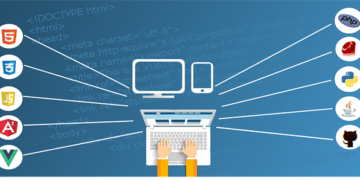As businesses adapt to the 21st-century digital era, the methods they use to hire, onboard, and manage employees have undergone a revolution. Remote work, which once seemed a distant dream for many, is now an integrated component of our work culture.
However, it’s not without its challenges. One significant challenge is verifying the identities of remote hires. This is where digital identity verification steps in, bridging the gap and making remote hiring as credible as traditional methods.
The Increasing Importance of Digital Footprints
Every individual leaves a digital footprint, be it through online transactions, social media, or professional networks. This footprint is now crucial in the hiring process. Companies are keen on vetting an individual not just based on their resume, but also their online persona and authenticity.
Further Benefits of Digital Identity Verification
- Data Security: With cyber threats on the rise, safeguarding personal data becomes paramount. Digital identity verification tools use encryption and advanced security measures to ensure that the data remains uncompromised.
- Cost Savings: Traditional verification can be expensive, requiring physical infrastructure and manual labor. Digital processes can provide significant cost reductions in the long run.
- Consistency: Digital tools follow the same stringent checks every time, ensuring that every candidate is vetted with the same rigor, eliminating human error or bias.
Delving Deeper into Implementation
- User Experience (UX) is Key: While integrating a digital identity verification system, ensure that the user interface is intuitive. A clunky experience might turn potential hires away or result in a less-than-accurate verification.
- Stay Updated: The digital landscape is continually evolving. What works today might be obsolete tomorrow. It’s essential to keep the system updated to ensure accuracy and security.
- Global Compliance: As you tap into the global talent pool, remember that identity verification laws might differ from one country to another. Ensure that the chosen system aligns with international compliance standards.
Addressing Concerns
It’s worth noting that some potential hires might be skeptical about sharing personal information online due to privacy concerns. Addressing these concerns upfront is essential. Assure candidates about data security, the encryption methods in use, and the duration for which the data will be stored. Transparency is crucial in establishing trust.
The Future is Digital
Imagine a future where the hiring process, from screening resumes to onboarding, is entirely remote and digital. We’re steadily steering towards this reality. And as we move forward, the tools we use will play a decisive role in shaping the quality and efficiency of our hiring process.
In Conclusion
Remote hiring, while convenient, presents unique challenges that can only be tackled through innovative solutions. Digital identity verification is not just a solution; it’s the foundation of trustworthy and seamless remote recruitment. As businesses continue to evolve and adapt, this technology will undoubtedly be at the forefront, guiding HR professionals in building authentic, global teams. Investing in it today is an investment in the future of recruitment.




























































